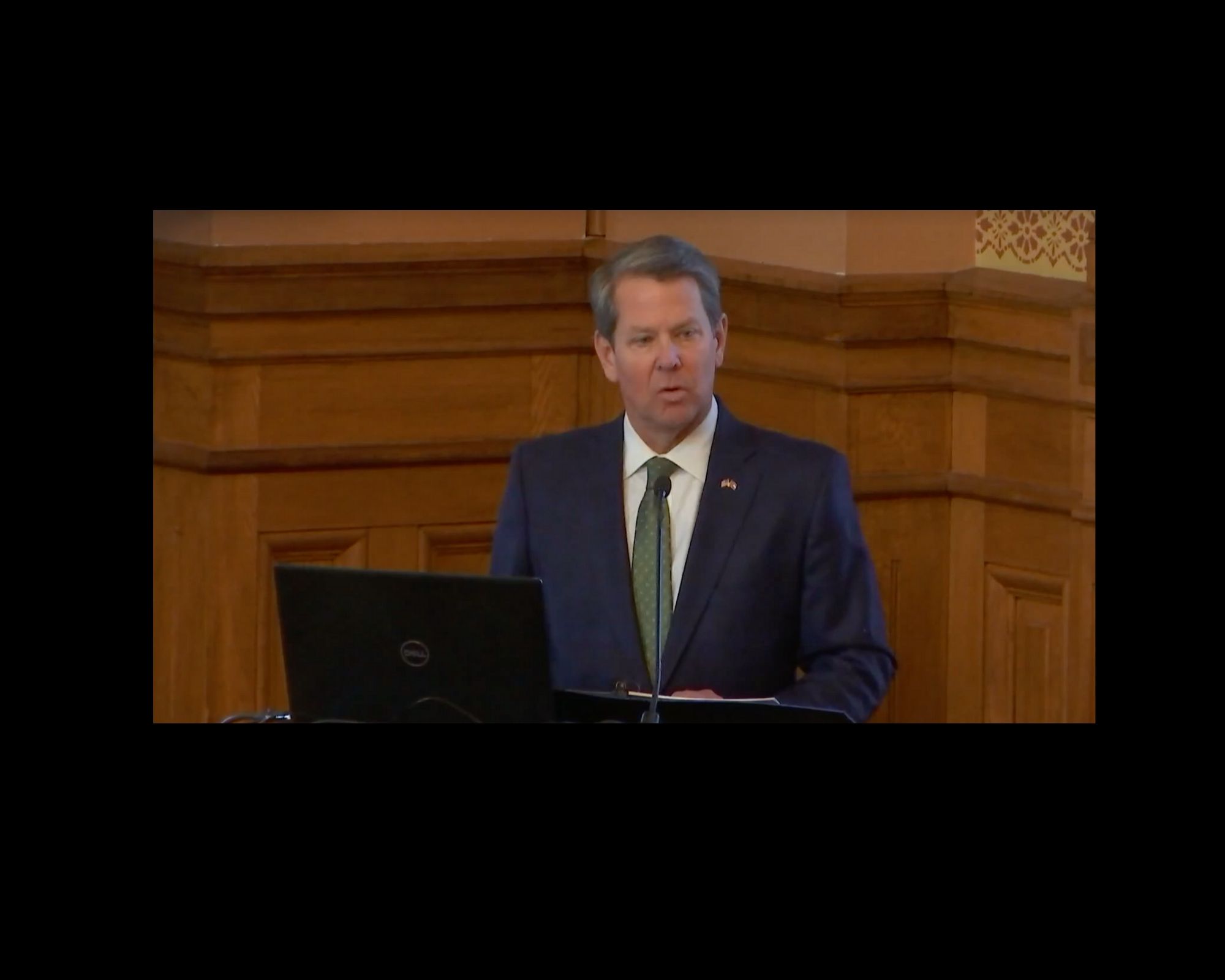
- Select a language for the TTS:
- UK English Female
- UK English Male
- US English Female
- US English Male
- Australian Female
- Australian Male
- Language selected: (auto detect) - EN
Play all audios:
By Tom Baxter Even though it doesn’t always feel that way, more people will get up and go to work today in Georgia than at any time in the state’s history. In the past year alone, a
quarter-million new jobs have been added in the state, Gov. Brian Kemp told the Joint House-Senate Budget Committee last week, as he rolled out his budget plan to lawmakers. State Economist
Jeffrey Dorfman echoed the governor’s cheerful, yet cautious, assessment. Kemp chose Dorfman, a University of Georgia professor who has served as an economic advisor to the Gwinnett County
Commission, to be state economist last summer. “The Georgia economy is so good we have essentially run out of workers, and it is very hard to grow employment when your state unemployment
level is 3.3 percent,” Dorfman said. Without more employment, it’s hard to get more revenues, and that was the careful line the governor and his economist were walking. Since the expected
windfall from the federal tax cut failed to come through, state agencies have been forced to make cutbacks in the middle of a booming economy. With 80 percent of the state budget on
autopilot — the part which pays for Medicaid and public education — and growing, flat revenues mean the cuts have to come from the remaining 20 percent. “If some things grow faster than the
average, other things need to grow slower or get cut. That’s just how math works,” he said. The way politics works is that when big cuts have to come out of a smaller slice of the pie, there
is blowback. Dorfman’s testimony was followed by a dour presentation from Agriculture Commissioner Gary Black, who said the cuts ordered by the governor have forced the elimination of
critical positions in his department. Rural legislators complained in a front-page AJC story that they are being “killed” by the cuts. It was left to Dorfman in his opening presentation to
acknowledge what was already implicit in this year’s budget proposal, that with revenues already scarce, the second quarter-percent cut in the state income tax rate isn’t going to happen.
Nor would cutting the rate again attract more businesses to the state, he said. Dorfman said the best things Georgia could do to attract new workers and businesses — and if you’ve economists
speak in forums like this, you’ve probably already heard this more than once — are funding education and improving the state’s roads, bridges and other infrastructure. “After that, you kind
of have to steal your growth from somebody else,” by such means as offering financial incentives for businesses to locate, he said. One reason it doesn’t always feel like everybody in
Georgia is working is that economic progress has been uneven. Another is that there has been a major shift in who is working, with more women on the job, and more men leaving the available
work force. Although the state’s economy is “quite good” and not close to falling into a recession, Dorfman said it is likely to grow slowly or sink over the next nine to 12 months. An
interesting facet of this presentation, compared to previous economists’ reports over the years, was the growing emphasis on China and its impact, for both good and bad, on the state’s
economy. As the nation’s 12th most trade-dependent state, Georgia has been sensitive to the twists and turns of the U.S.-China trade dispute. Dorfman rated China first among the outside
factors which could cause problems for the state’s economy, mentioning in passing the coronavirus outbreak among several things that could go wrong. In the week since he spoke to the budget
committees, that concern has grown exponentially. Much of the recent agreement between the two nations has to do with soybeans, which Georgia doesn’t grow much of. But the lifting of Chinese
tariffs on pecans and poultry has been good news for the beleaguered farm economy, Dorfman said. The Chinese are keen to trade for Georgia poultry products because African swine flu has
killed 200 million pigs in that country. But our ability to meet their appetite for Georgia pecans will be limited for some time by the devastation wrought by Hurricane Michael in 2018.
Nearly two years after that storm, Dorfman said there are not enough pecan seedlings in the world to replace the trees that were lost. _RELATED POSTS_







![[withdrawn] use of plasma donations to treat covid-19: recommendations from sabto](https://www.gov.uk/assets/static/govuk-opengraph-image-03837e1cec82f217cf32514635a13c879b8c400ae3b1c207c5744411658c7635.png)